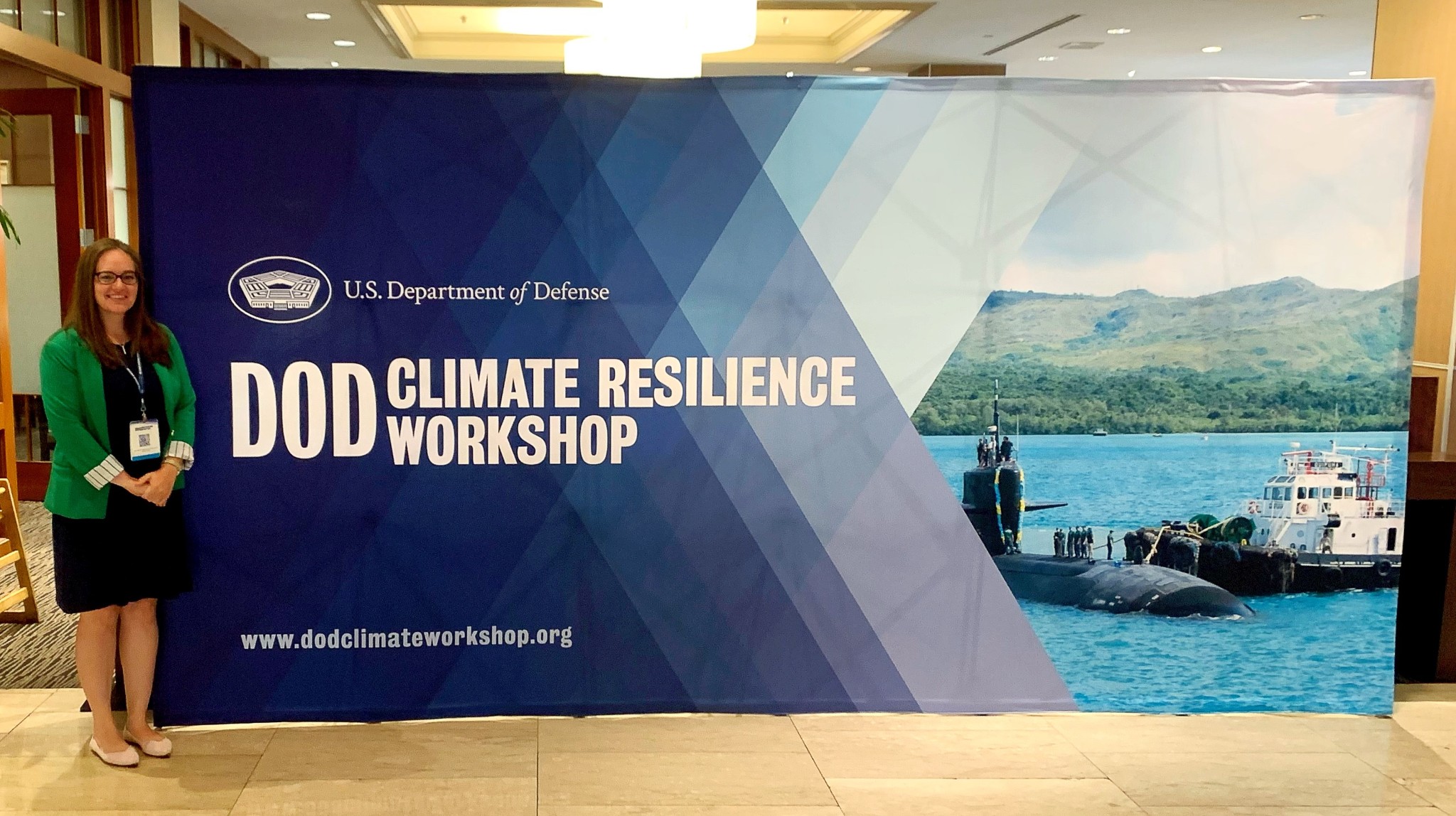
Event Recap: DoD Climate Resilience Workshop 2023
From July 10-13, Jessica Olcott Yllemo, ASP’s Director, Climate Security Programs, participated in the Department of Defense (DoD) Climate Resilience Workshop 2023 in St. Louis, Missouri. Sponsored by the Office of the Assistant Secretary of Defense for Energy, Installations, and Environment (ASD EI&E), the event provided a series of panels, deep dives, and vignettes for DoD stakeholders and partners to discuss climate programs, tools, and resources to facilitate DoD’s climate resilience efforts.
The multi-day event provided insight into several major DoD programs, including the Readiness and Environmental Protection Integration Program (REPI), which funds a range of projects designed to avoid land use conflicts around military installations, mitigate encroachment challenges, and increase resilience to climate change. According to REPI’s latest Annual Report to Congress, since 2023, REPI has been able to protect over 1.18 million acres of land at 120 locations across 35 states and territories to preserve key operational assets, infrastructure, and capabilities.
The workshop also coincided with both the 10-year anniversary of The Sentinel Landscapes Partnership, and the announcement of the newest Sentinel Landscapes in the Virginia Security Corridor, comprised of the Potomac Sentinel Landscape and the Tidewater Sentinel Landscape. These designations foster military readiness, conserve natural resources, and bolster agricultural and forestry economies through a coalition of state and local stakeholders, as well as the Departments of Agriculture, Defense, and Interior projects. The existing 11 partnerships have already resulted in the protection of nearly 610,000 acres of land and the enrollment of another 3.1 million acres of land in financial and technical assistance—all of which enhance resilience to climate change.
Other panels and presentations provided case studies from installations and defense communities around the country. Activities also highlighted resources for developing and funding projects focused on coastal resilience, drought and water sustainability, decarbonization of buildings, and wildfire resilience. The sessions subsequently facilitated the exchange of best practices and lessons learned while providing overviews of critical data tools, including the DoD Climate Assessment Tool (DCAT) and Defense Regional Sea Level (DRSL) database, all of which empower key stakeholders with the best available data to inform decision-making.
Complemented by remarks from senior leadership of each of the service branches, the workshop emphasized the permanence of DoD climate action at all levels of the military. As Dr. Ravi Chaudhary, Assistant Secretary of the Air Force for Energy, Installations, and the Environment put it, “climate action is mission action.” From the Defense Community Infrastructure Pilot Program (DCIP) to the Office of Local Defense Community Cooperation (OLDCC)’s Installation Resilience program, its clear that DoD’s commitment to facilitating readiness through climate resilience remains a priority for DoD.





